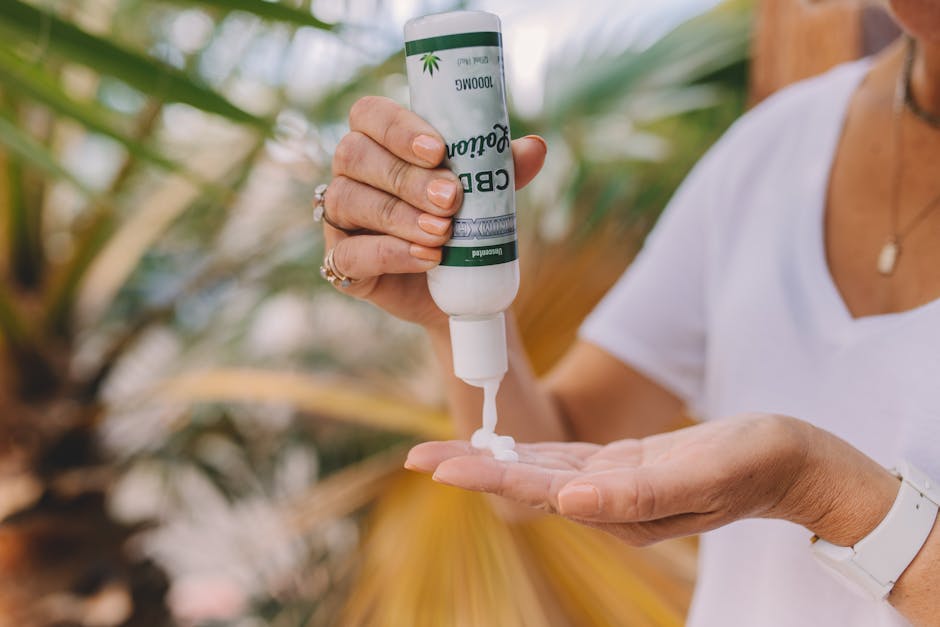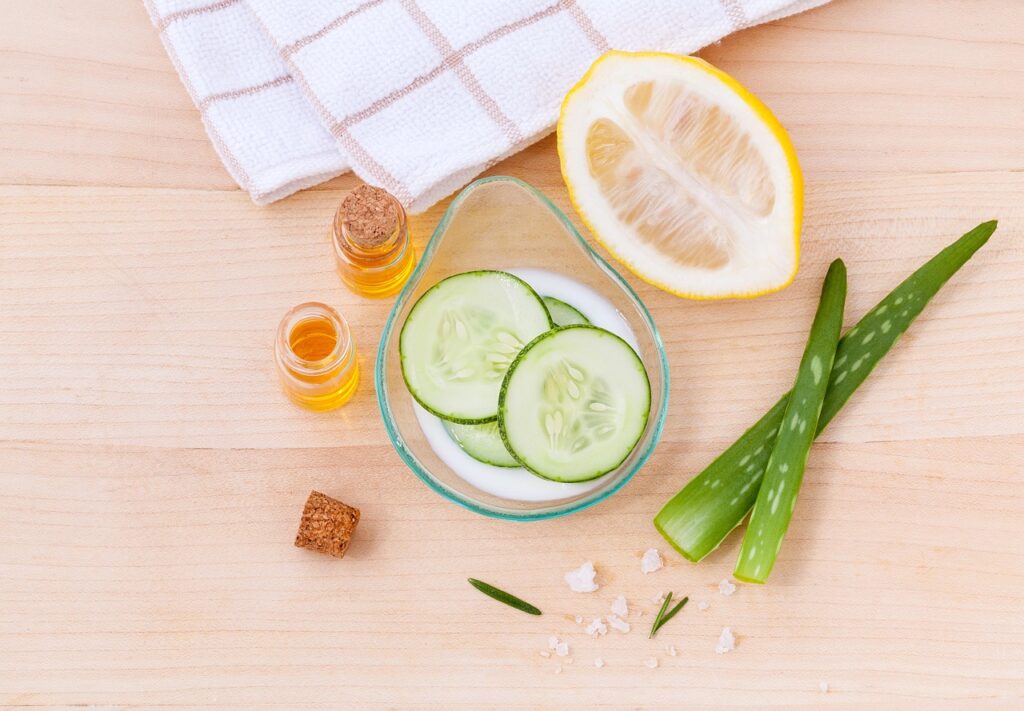What Organic Skincare Actually Means
Understanding the true meaning behind skincare labels is essential if you want to make informed, healthy choices for your skin. Terms like organic, natural, and clean are often used interchangeably but they mean very different things.
Decoding the Labels
“Organic”
Refers to products made with ingredients grown without synthetic pesticides, fertilizers, or genetically modified organisms (GMOs)
Often regulated and certified by recognized standards like USDA Organic or COSMOS Organic
“Natural”
Typically indicates ingredients derived from nature (plants, minerals, etc.)
Not always free from synthetic processing this term is loosely regulated, if at all
“Clean”
Usually means free from certain controversial ingredients (like parabens or sulfates)
Driven more by brand philosophy than scientific consensus or oversight
Quick Tip: Just because an ingredient is natural doesn’t mean it’s safe or effective. Always look into both the source and concentration.
Certification Standards You Should Know
To cut through the marketing noise, look for established certifications on product labels. These stamps of approval can help confirm an item meets certain organic criteria:
USDA Organic Requires at least 95% organically produced ingredients
COSMOS Organic Recognized across Europe, with rigorous environmental and ingredient standards
NSF/ANSI 305 Focuses on products with organic content but allows some synthetic processes (used mainly in personal care products in North America)
These certifications ensure transparency in sourcing and manufacturing but not all skincare brands pursue them, often due to cost, even when their formulas meet similar standards.
Why Labeling Matters
Marketing terms are often designed to “sound” green and healthy. But without regulation, labels can be misleading.
A product labeled as “natural” or “organic” may still contain synthetic preservatives, fragrances, or allergens
Misleading labeling creates false trust read the full ingredient list instead of relying on front of package claims
Bottom Line: Certifications and ingredient lists often tell a more honest story than trendy taglines. Being label savvy can help you avoid products that don’t align with your skincare values or needs.
Pros That Make Organic Skincare Stand Out
One of the biggest draws of organic skincare is what’s not in it. Fewer synthetic chemicals mean less chance of irritation, especially for sensitive skin that flares up with traditional products. You skip ingredients like parabens, phthalates, and synthetic fragrances common culprits behind breakouts, dryness, or worse.
What you get instead: a concentration of plant based extracts loaded with antioxidants and nutrients your skin can actually use. Think green tea, aloe, chamomile, and oils like jojoba or rosehip. These work with your skin not against it.
Then there’s the eco factor. Choosing organic often means supporting sustainable farming practices, biodegradable packaging, and fewer toxins going down your drain. It’s a win for your skin and the planet.
Long term, sticking with high quality organic products could help improve your skin’s resilience. Less inflammation. Stronger skin barrier. Fewer flare ups.
If you want to understand even more about how organic skincare works and when it’s actually worth it, check out this deeper guide: benefits of organic skincare.
The Flip Side: Cons to Consider

Let’s be honest organic skincare isn’t perfect. First off, the shelf life tends to be short. Without synthetic preservatives, some products can go bad fast, especially if not stored properly. If you don’t use them consistently, you’re tossing out half empty bottles.
Then there’s the price. Organic often means boutique, and boutique usually means expensive. For many people, that premium just isn’t sustainable long term.
Another issue? Testing. A lot of organic skincare brands skip the large scale clinical research that bigger names invest in. That doesn’t mean the products don’t work it just means you’re relying more on brand trust and personal trial and error.
Finally, don’t let the word “organic” fool you into thinking irritant free. Essential oils, which pop up a lot in natural formulas, can trigger reactions especially on sensitive skin. Labels might look clean, but your skin might not agree.
Natural doesn’t always mean better. It means different and it means checking in with what works for you.
How to Choose What Works for You
Buying skincare shouldn’t feel like decoding a puzzle, but here we are. Start with the back of the bottle ingredient lists don’t lie. Skip the flowery label promises and look at what’s actually inside. Fewer fillers, no questionable additives? That’s a better sign than any “all natural” claim on the front.
Next: patch test. It’s not the most glamorous step, but it saves a lot of regret. Apply a small amount to your inner arm or behind your ear and wait 24 hours. Every skin type is different, and even organic ingredients can irritate.
Certifications help cut through the noise. Terms like “USDA Organic” or “COSMOS Certified” aren’t just for show they mean the product met real standards. If the label’s full of buzzwords but no certification in sight, proceed with caution.
Lastly, know your skin. Dry and flaky? Oily and sensitive? Acne prone with the occasional flare up? What works for one person might wreck another’s skin barrier. Match ingredients to your specific needs and ignore what’s trending if it doesn’t make sense for you.
Final Takeaway: It’s All About Balance
Organic skincare has its perks fewer questionable chemicals, more plant based ingredients, and better environmental vibes. But let’s get one thing straight: it’s not a magic fix. No cream or serum, organic or not, can overhaul your skin overnight. Results come from consistency, not labels.
If your routine is chaotic or constantly shifting, even the best product won’t deliver. Pay attention to what your skin actually likes. Sometimes that’s a simple jojoba oil. Sometimes it’s a lab tested formula. The trick is watching how your skin responds, day after day, not just chasing the next big trend in green beauty.
Organic is a smart move for many, but it’s one piece of a bigger picture. Think long term, stay consistent, and choose products that work with your life not just your ideals.
Want a deeper dive? Don’t miss this guide on the benefits of organic skincare


 Bonnie Brown is an expert in holistic wellness with over a decade of experience in natural health and skincare. She has dedicated her career to helping individuals achieve radiant health through plant-based solutions and mindful self-care practices. Bonnie is passionate about blending ancient traditions with modern wellness techniques, making her insights a valuable resource for anyone on a journey to healthier skin and overall well-being.
Bonnie Brown is an expert in holistic wellness with over a decade of experience in natural health and skincare. She has dedicated her career to helping individuals achieve radiant health through plant-based solutions and mindful self-care practices. Bonnie is passionate about blending ancient traditions with modern wellness techniques, making her insights a valuable resource for anyone on a journey to healthier skin and overall well-being.
